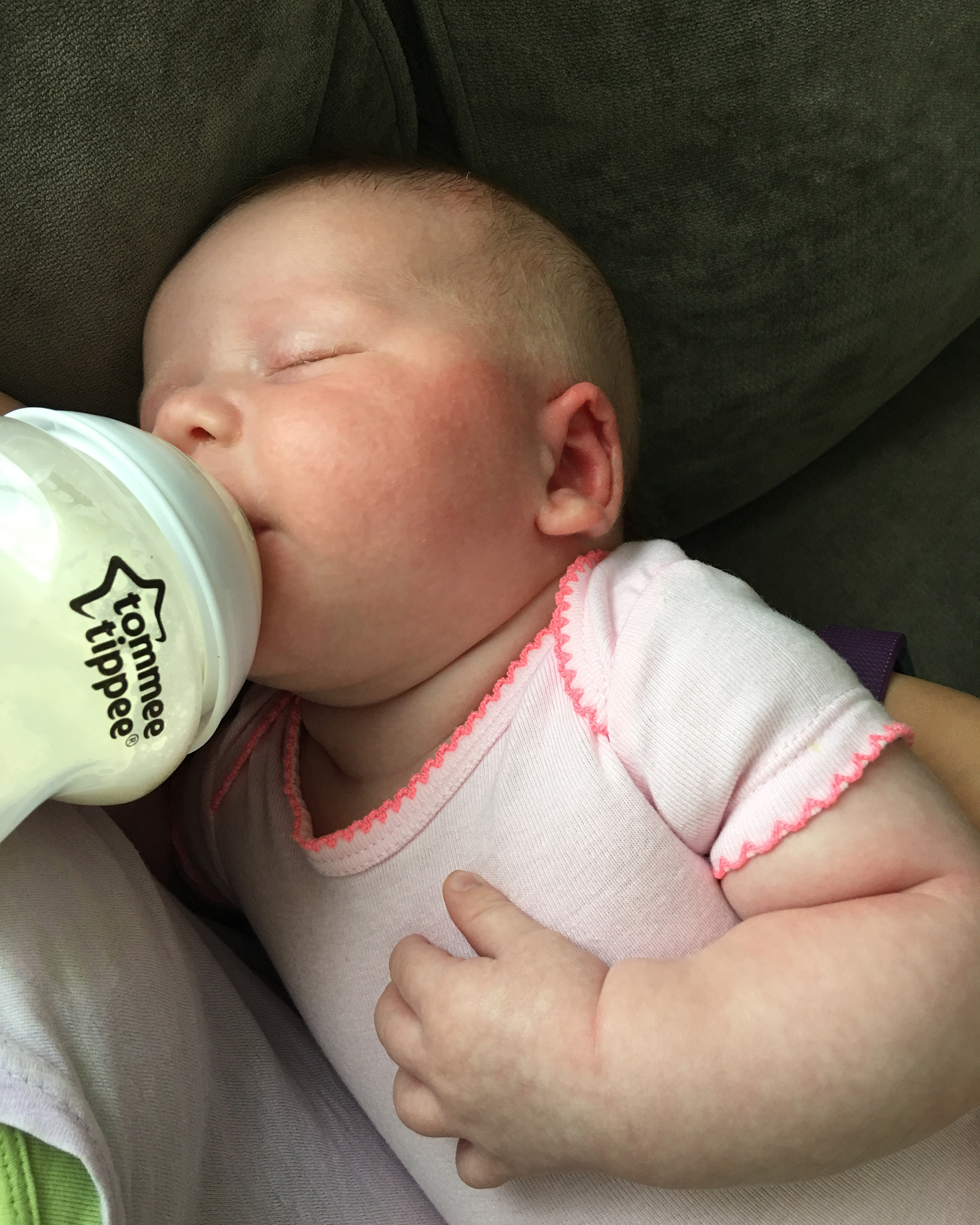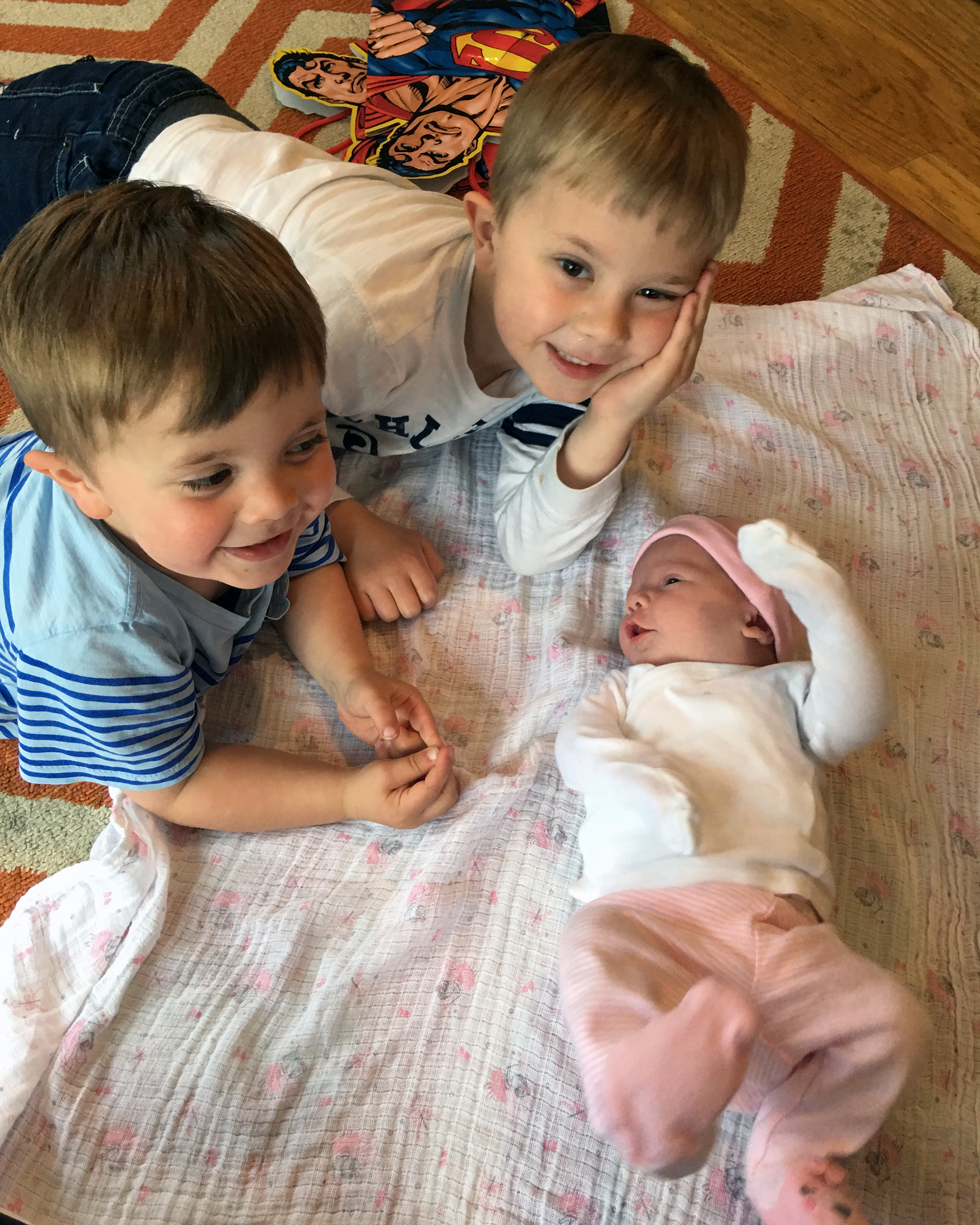
I clutched the swaddled newborn in the crook of my arm. Only a few hours old, she was asleep, for which I was thankful. I knew when she woke, she would want to feed. A young doctor stood at the foot of my bed. I had a question but didn’t know if I could get through it without crying. He seemed so young. I imagined him still living at home, and his mother—so proud!—ironing his starched white doctor coat for him. If he had an answer about how to feed my daughter, I didn’t want to hear it from him. He didn’t have children, I could tell. And he didn’t have breasts.
But then again, neither did I.
In response to the national formula shortage, there are some who are calling for women to “just breastfeed.” Many women, already burdened by limited childcare, full-time jobs, and managing a continuing pandemic, will do just that. But for other women—for many women—“just breastfeed” isn’t an option.
Read More: 5 Parents on the Stress of Trying to Feed Their Babies Amid a Nationwide Formula Shortage
The mantra “breast is best” gets hammered in at every doctor’s appointment, every birthing class, every semi-cultish-new-mother Facebook group. I have four children, and I imbibed this message. Until it wasn’t an option.
Baby #1: I exclusively breastfed my first son for six months until I couldn’t produce enough milk to keep up. Then I switched to formula. According to the CDC, about 40% of babies follow this trajectory, starting on breast milk, and by six months, moving to formula. Women who start breastfeeding, but have to stop have plenty of reasons: it’s not working, they’re worried about their babies’ weight gain, they can’t take their own necessary medication and breastfeed at the same time, and—this should come as no surprise to anyone who’s done it—it’s too damn hard. And these numbers only tell the story of women for whom breast feeding worked from the beginning. They also don’t include adoptive parents or parents whose children were born to surrogates.
Read More: What We Get Wrong About Life Before Modern Baby Formula
Baby #2: My second son was a different story. A seven-pound gourmand-in-training, he refused anything but the breast. He even refused a bottle of pumped breast milk, the jerk. Only 1 in 4 babies in the U.S. are exclusively breastfeed through six months. I have four children, and he was my one.
Thank God.
Every time he fed, he grabbed and punched and tugged the same spot on my breast. I pulled off his small, fat hand a hundred times.
That’s where, when he was 10 months old, I found the tumor.
Baby #3: I didn’t think I could get pregnant after cancer. I was wrong.
When I discovered I was pregnant, we went in for a scan with a high-risk ob-gyn. On the exam room wall hung a poster of a baby at a woman’s bare breast. I turned away. I had no choice but to have a bilateral mastectomy. My chances of recurrence without one were 40%.
Read More: Washington Politicians Helped Create the Baby Formula Shortage. Can They Solve It?
We didn’t know if the pregnancy would be viable. She had been exposed to two rounds of Herceptin, the immunotherapy drug I was still taking. There was no research on how it would affect the embryo. Before we had a scan, we had no way of knowing if the embryo was healthy or if I would have to abort. I wondered—briefly—if maybe it would be better that way. I wouldn’t be able to breastfeed this baby. That’s how strong the “breast is best” message is. Plus, there was the nagging thought I had a hard time admitting out loud. I felt stupid, irresponsible for getting pregnant so soon after cancer. The thought that dominated my thinking: it could come back. I would leave my now three children motherless.
I felt crushing guilt that I had let this baby down, and it only worsened once she was born. I remember the first time we were alone together in our hospital room. I should have been on autopilot. This was my third baby. But as I looked around the room, I realized I didn’t know how to feed her. Was I supposed to ask a nurse for bottles? Were they in some drawer somewhere? What would I do when she woke and I had no way to feed her?

That’s when the young doctor came in, the one who couldn’t possibly understand. But soon after, a seemingly more experienced physician entered the room. Surely, she would be able to not only to tell me how to feed my daughter, but also assure me that babies who drink formula turn out just fine.
I don’t remember most of what this doctor said. She wore glasses. She had children of her own. I do remember was her telling me formula would be the difference of “losing a few IQ points.”
Doctors, don’t do this.
I sobbed in front of the doctor. (I never cry in front of doctors. That’s what the upstairs hallway, the foot of my bed, the shower is for.) I sobbed when I came home. I sobbed every time I gave my daughter a bottle. When we fed, I pulled up her tiny onesie and pulled up my own shirt, pressing our skin together.
Read More: COVID-19 Is Making New Moms Feel Even More Pressure to Breastfeed
I gave up my grief after a week. She sucked down those bottles so fast—it was clear she didn’t care, and she didn’t know the difference. My husband could feed her without my assistance. She was the easiest baby and the happiest baby, not because of formula, but because she had parents who knew what they were doing.
Baby #4? I handed that kid a bottle and didn’t think twice.
In America, we ask too much of women’s bodies.
Most women who formula feed have not had their breast tissue scooped from the twin skin pockets hanging across their chest, but regardless of the circumstances, parenting is hard enough without strangers piling on judgment. Women who formula feed are no different than women who breastfeed: they’re simply trying to be the best mothers they can be. We should let them.
More Must-Reads from TIME
- Cybersecurity Experts Are Sounding the Alarm on DOGE
- Meet the 2025 Women of the Year
- The Harsh Truth About Disability Inclusion
- Why Do More Young Adults Have Cancer?
- Colman Domingo Leads With Radical Love
- How to Get Better at Doing Things Alone
- Michelle Zauner Stares Down the Darkness
Contact us at letters@time.com